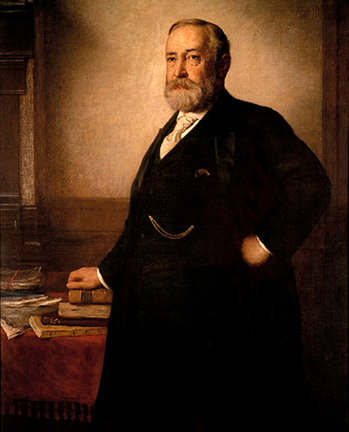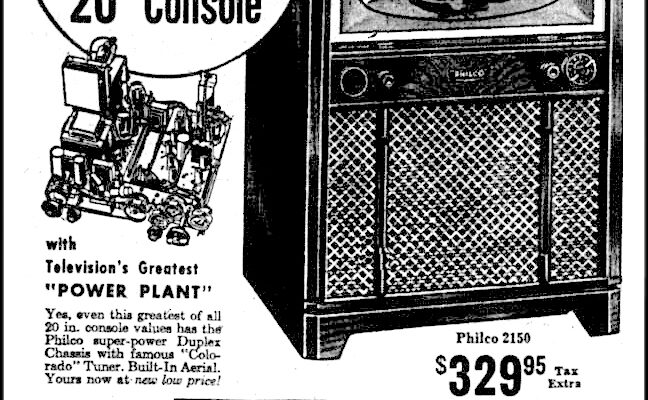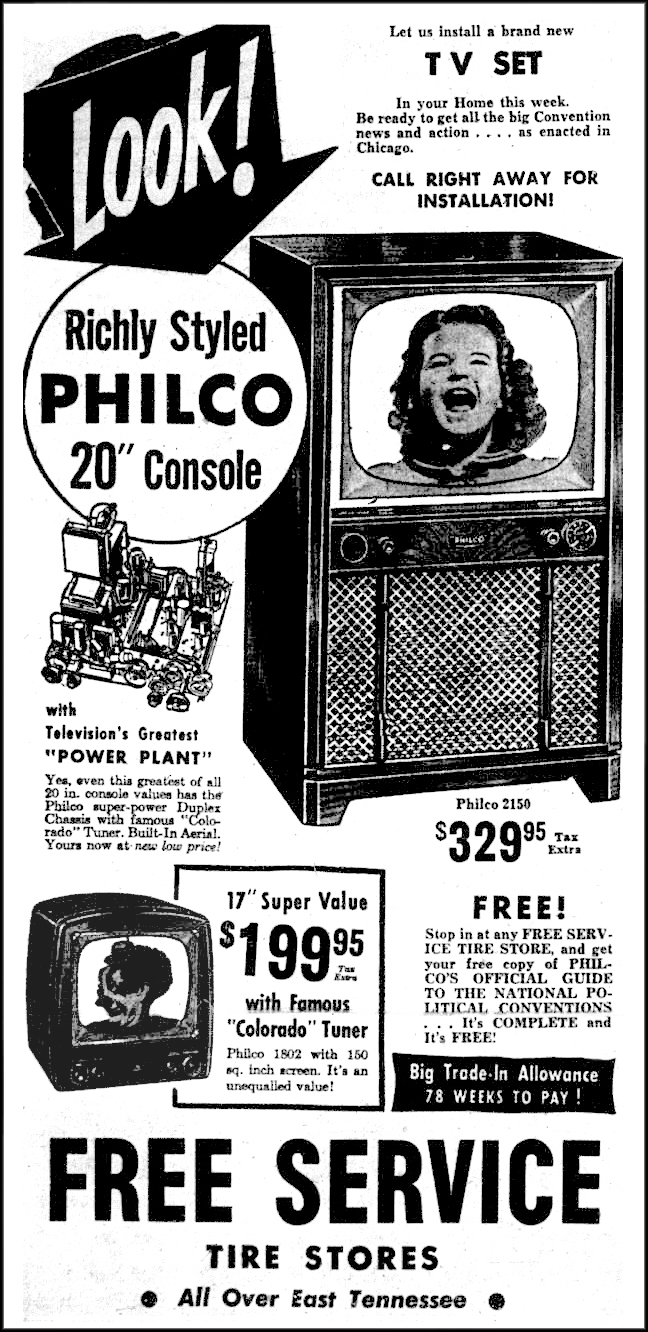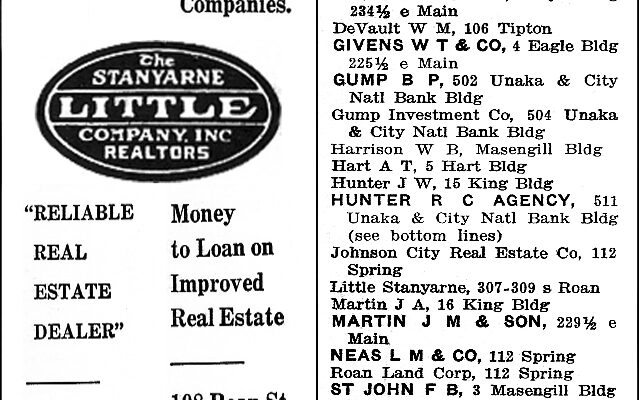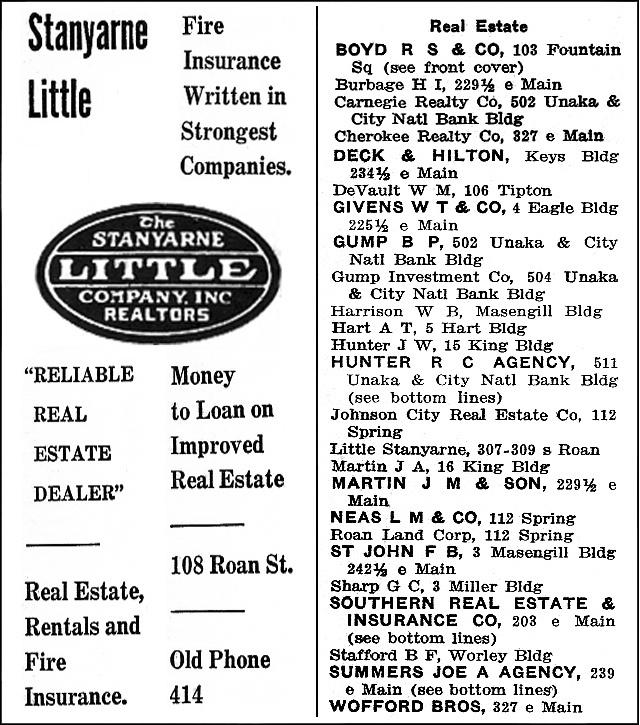Dr. Nat Winston, Jr., former Johnson City resident, leading psychiatrist, healthcare pioneer, previous Commissioner of Mental Health and a past candidate for governor of Tennessee, passed away peacefully on December 31, 2013. Susan Taylor Carson, a close friend of the Winston family, forwarded me several notes of conversations she had with Nat's widow, Martha Winston. She also scanned and sent a number of photos obtained from Mrs. Winston.
Susan is from a well-known Johnson City family. Her parents were Sam and Betty Taylor who owned and operated Taylor Furniture Co. at Boone and King streets in downtown Johnson City. Nat and Sam grew up across the street from each other on Welbourne and E. 8th avenues, went through school together and joined the Army together during WWII.
Older area residents will likely recall Dr. Winston, who operated as a psychiatrist out of his office at 404 N. Boone near Watauga, launched a highly successful crusade in the healthcare field and enjoyed a long and rewarding career of doing what he did best – helping people.
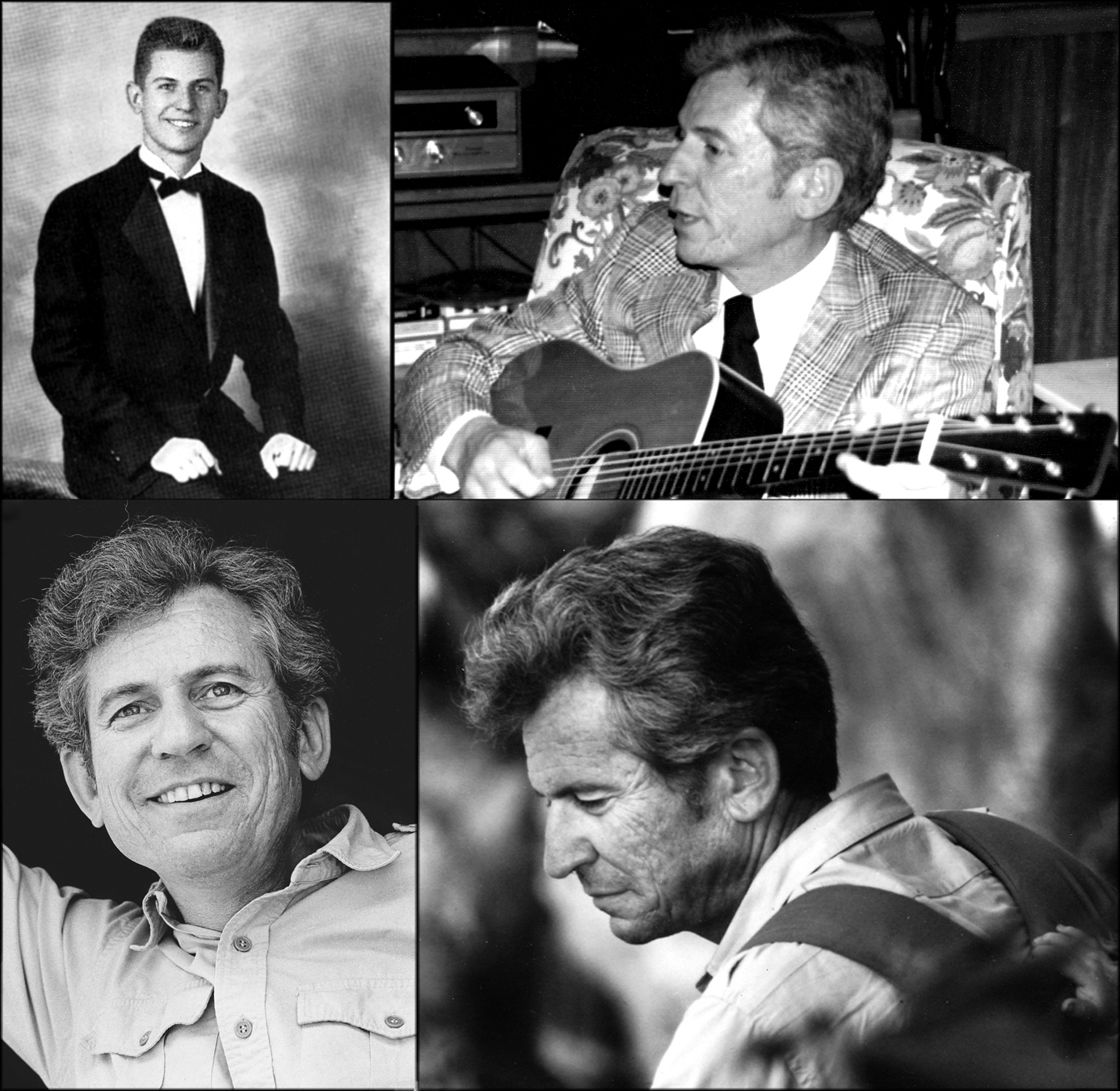
Dr. Nat Winston in His Younger Years
Nat's star was already beginning to rise as a student at Science Hill High School. The 1944 yearbook impressively said it all: “Worthy, Courage, Honor, these indeed your sustenance and birthright are. College Preparatory and State: Madrigal Club; Reporter, Prayer Group; President, Glee Club; President, National Honor Society; ROTC, Major; Student Council; ROTC Metal; President, 10-B Class; President, 10-A Class; Reporter, 11-B Class; Reporter; 11-A Class; Reporter, 12-B Class; President, 12-B Class; and President, 12-A Class.”
In addition, Nat was voted “Most Outstanding Senior,” “Best All Around Senior Boy,” “Most Popular Boy” and “Best Executive” and received more senior superlatives than any student in the school's history to that date.
According to Susan, “Nat was Tennessee's Commissioner of Mental Health under two governors: Buford Ellington and Frank Clement. Nat was so popular that a large contingency of supporters begged him to run for governor, in the Republican primary, which he did in 1974.
“Nat's contributions to our city, state and country should not be overlooked or understated. After graduating from Vanderbilt medical school, he came back to Johnson City and set up the first mental health clinic. From here, he went to Chattanooga to establish and manage Moccasin Bend Mental Health Hospital. He changed the way the medical profession treated mentally ill patients and, in the mid 1960s, Reader's Digest wrote a feature article about him, recognizing that he spawned the birth of a quiet psychiatric revolution.”
“Nat was a very popular and highly sought after public speaker and storyteller throughout the nation and he used his banjo to tell stories of the mountain folks of Appalachia, for whom he had a deep love.
“Nat, Jr. was a son of Nat, Sr., who was once president of Home Federal Savings and Loan Association and president and director of the Johnson City Chamber of Commerce.
“Nat and his father together built a cabin deep on the side of Grandfather Mountain. It was there that he got to know and love the mountain people of rural North Carolina, deeply immersing himself in the study of Appalachian history. He made field recordings of the residents and recorded an album in 1966 entitled 'All the Good Times Are Past and Gone,' in which he included the recordings of the mountain-told stories of courtship, feuding, moonshining and others.”
In 1962, Nat wrote and recorded a banjo instructional record and course that was distributed through Sears, Roebuck & Co. It sold over a million recordings, for which he received a gold record. It was the first true how-to-play Scruggs style banjo instruction published.
Nat's mother, Mrs. Nat T. (Naomi) Winston, Jr. was a school teacher at Stratton and then Junior High School in the 1940s and 50s. Many students from that era may recall that she frequently talked about her son in class, usually discussing his love of old-time music and especially the banjo.
Susan indicated that Dr. Winston first met Earl Scruggs when he was a medical school resident at Vanderbilt University. Earl was in a serious automobile accident and was laid up in the hospital in Nashville. Nat and Earl quickly became best fiends, with the popular banjo picker becoming a frequent guest at Nat's cabin in North Carolina. When the doctor moved to Nashville in the mid 1960s, he was Earl's neighbor and became the go-to psychiatrist for the troubles of many country music stars.
In 1964, Winston made an 11-minute music video for a local television feature with Earl Scruggs at Nat's home. The video can be viewed at www.youtube.com/watch?v=xDxHws7r6qs. The jam session is quite entertaining, even though the quality deteriorates toward the end.
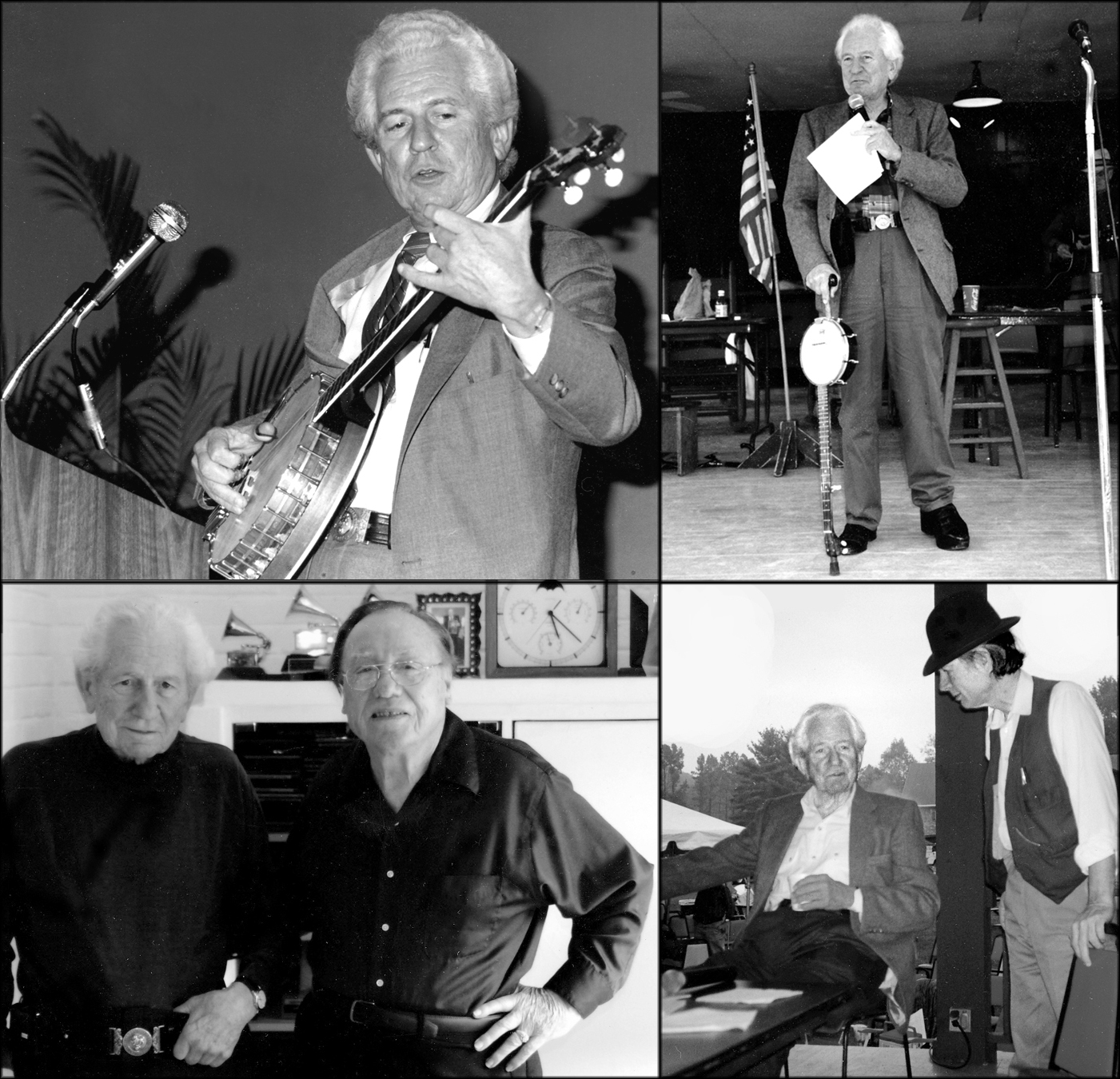
Dr. Nat Winston in His Older Years (others are Earl Scruggs (left) and John Hartford (right))
In 1971, Dr. Winston was called on to appear on Ralph Edwards “This Is Your Life” nationally syndicated television program. That night the producers shined the big spotlight on country music singer, Johnny Cash. The entertainer was surprised during a filming of his hit television program, “The Johnny Cash Show.” He had just finished welcoming the studio audience when his wife, June Carter Cash, walked onstage unannounced and abruptly introduced Ralph Edwards to the bafflement of her husband. Between moments of laughter and sadness, the singer was overcome with emotion several times.
Ralph Edwards introduced Nat as the president of the American Psychiatric Hospitals, Inc. His brief portion of the show can be viewed at 4:15 on YouTube (www.youtube.com/watch?v=WEdU8KhNGuA). Nat told the audience, “I gambled on John and we both won.” Johnny, knowing that Nat was instrumental in helping the singer overcome serious problems at the peak of his career, said to Nat as he was walking away, “You're a fine banjo player too.”
Martha Winston recalled that Nat often talked about the time he received a call from June Carter Cash urging him to treat her husband. Although Johnny would not agree to enter a hospital for rehabilitation, he was perfectly willing for Nat to come to his Hendersonville, Tennessee home for private therapy. Nat did this over a period of one year, visiting Johnny every day after work without accepting compensation. He did it out of friendship and love for Johnny and members of the Carter family. Also, since he was serving as Commissioner of Mental Health, he felt it would be a conflict of interest to continue to treat patients for a fee while he was serving the state.
“Johnny Cash credited Nat,” said Susan, “both in his biography and publicly on the Larry King Show for his medical treatments that restored his life and career.
“On one visit, “Nat told him of James “Tiger” Whitehead, a colorful Carter County mountaineer, mill operator and bear hunter (reportedly killed 99 bears during his lifetime). On another trip to Nat's cabin, he took Johnny to visit Tiger's grave on Tiger Creek Road between Hampton and Roan Mountain. Johnny was so impressed by the story that he wrote “The Ballad of Tiger Whitehead,'” which he later recorded on an album. Nat had no idea that Johnny gave him credit as co-writer until one day when he received a royalty check. Listen to Johnny talk about Tiger Whitehead and sing the song at http://www.youtube.com/watch?v=DjcegbdjH5g.
Nat had a quite interesting ancestry; the famous Taylor brothers, Governors, Alf and Bob were his kin. Locally, Harrison Taylor is also his relative and is a fine historian as well.
Carson further iterated : “Nat helped many people from all walks of life, not just the famous. In later years, he headed up a Nashville facility to treat at-risk teenage boys and then later specialized in the treatment of sexually abused women while he worked at a hospital in Jackson, Tennessee and then wrote a book on the subject.”
I asked Susan if she played the kind of music that Nat loved. “As for me,” she said, “I chair the ETSU Development Council for the Bluegrass, Old-Time, and Country Music Studies Program. It was Nat who started me playing the banjo and guitar in the mid 1960s. After my father's passing in 1974, Nat became somewhat of a surrogate father to me and I spent much time with him in recent years assisting Martha in the care of Nat's failing health. He was a great influence on my life, as well as upon the lives of many who knew him.
“Nat's family requested that memorials be given to the Council, which is a part of the ETSU's Department of Appalachian Studies. It is so fitting because he was passionate about the people and music history of Appalachia. In addition, he and his father have given many historically interesting documents and artifacts to the Reece Museum and Archives of Appalachia. It has been suggested that a room within the museum be named in his honor and legacy. We in the department would be very grateful.
“We are hoping to raise enough money through Nat's memorial to start a Winston scholarship. He would have been thrilled about that. He loved this music so much. I took one of our best fiddle students to his house and to visit him in the hospital where we entertained him. He was delighted and spoke of that often.”
In conclusion, Doris Cox Anderson, my aunt, who was in the same graduating class as Nat, recalled him by saying, “Not only was he a handsome man, he was also very friendly and highly intelligent. I am not surprised that he went on to have such a stellar career and life.”


